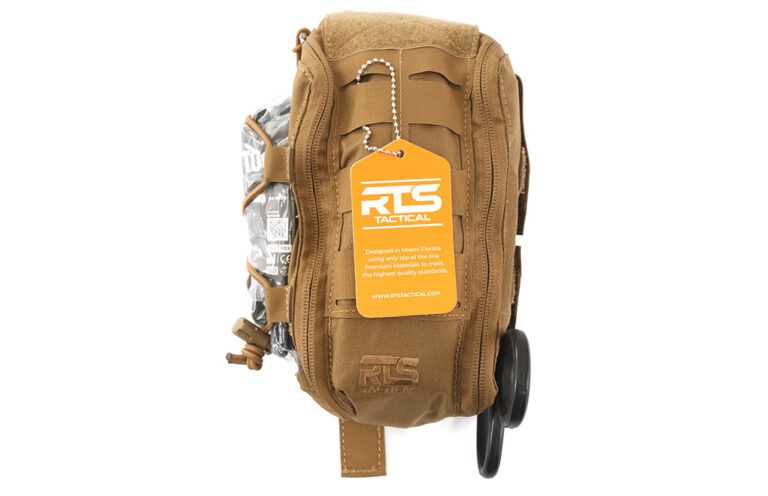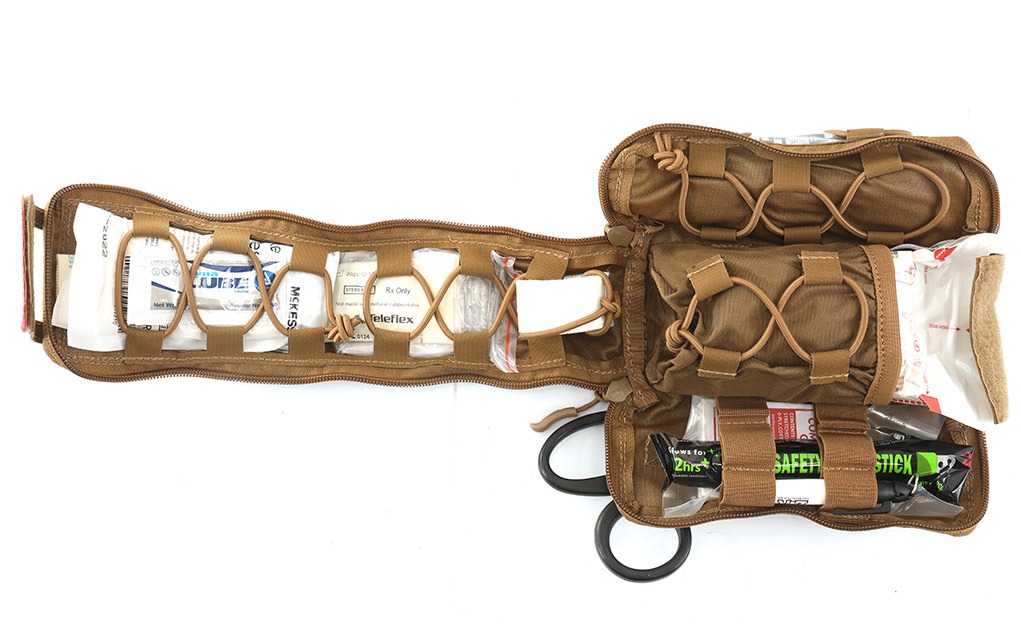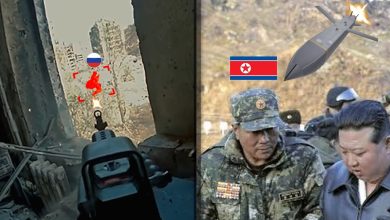Hardware Talk: RTS IFAK Kit


We take a quick look at the RTS IFAK Kit, a serious medical kit for serious injuries.
Firearms are dangerous … and that’s why we have them. But we also have “blow-out” kits, right? Right?
A blow-out kit is a first-aid package meant not to deal with sunburn and insect bites, but gunshot wounds and other serious injuries. A specific one I have strapped to my range bag comes from RTS, called the IFAK.
It’s meant to be attached to a soldier’s load-bearing or plate carrier, but it also attaches to a range bag by its MOLLE straps. Inside is a tourniquet (you get to choose from three brands), an Israeli trauma bandage that applies pressure to a wound, hemostatic gauze, more gauze, a chest seal, medical tape, CPR mask, gloves, shears and nasal airway. And this all comes in the pouch, which strips open one-handed.
A long time ago, I took a weeklong tactical medical class that was taught by a retired SF medic and an EMT tech. The kit I built the week after that class had all this in it, plus a Sharpie for writing times and other data on people and bandages. You can add a Sharpie to the RTS IFAK, no problem.
I spend an inordinate amount of time at the range—sometimes by myself and sometimes with another person or a lot of other people. There are always guns present (that’s why we are there, after all) and lots and lots of ammo going downrange. If there’s an accident, the RTS RDP IFAK will let me or someone else treat at least one, and perhaps two or three gunshot wounds. The one-handed opening is easy, if the kit is strapped to a bag or gear. Just grab the top loop, strip the dual zipper down and the whole kit splays open for your access.

Now, my kit is for me. That should be your first consideration. You have your kit; it’s for you. Mine is mine.
And that other guy? Well, he’s going to get treated from the med bag I have in the car or truck. That was one of the lessons drilled into us in the weeklong class. (Which also involved team live-fire exercises and simulated “You’ve just been shot, what will the team do?” drills.) Nothing personal, but I’m not using my kit on someone else unless I’m related to them. So, you should have your own kit in case the accident involving you happens on a range, where the other guy or guys also had that rule drilled into them.
Now, $170 seems like a lot of money. And it might be. But you can’t buy all the components of the kit for that, and you can’t find a carrier for them plus the contents for anything close to that. (That’s the power of buying in bulk via RTS.) And, you must have the knowledge to use the individual items when, and how, needed.
But the knowledge can be gained, and the gear purchased long before you need them. (Need I point out that there’s no time to learn—or buy—when it happens?) And if you never need them, then that’s good. The money isn’t wasted, because you have peace of mind forever after.
Oh, and if you do plan on having a “first aid” kit just for insect bites, sunburns and minor cuts and scrapes? Assemble it in a separate bag, so you have the two separated. My “owie” bag is a different color—that way there’s no mistake.
Again, as we learned in the class: “The IFAK is for when you might die. If not, do not even think about reaching into mine … or yours.”
Editor’s Note: This article originally appeared in the October 2024 issue of Gun Digest the Magazine.
Be Prepared:
Read the full article here







